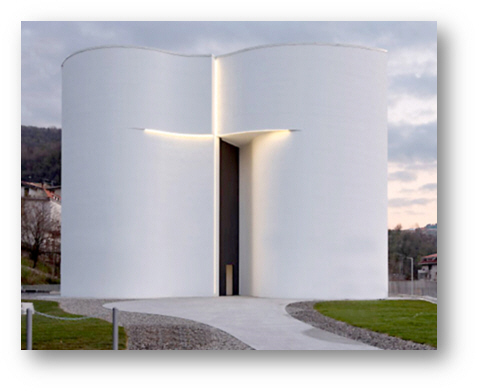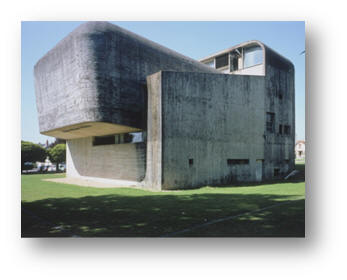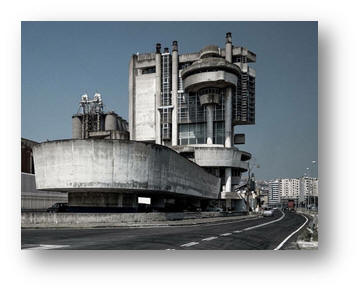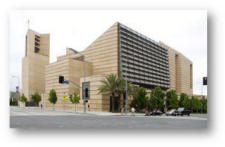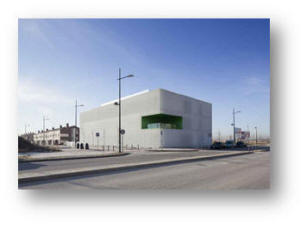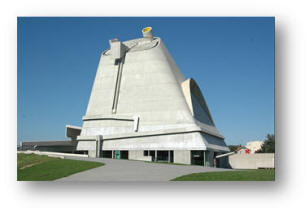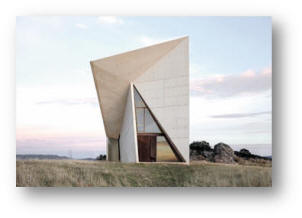|
|
|
|
|
|
|
|
|
|
Can YOU distinguish between the Church
and the Municipal Social Services?
-
The present-day “Catholic” Church has become — most especially under Francis — a tiresome reiteration of social correctitude and insipid platitudes from sources other than Holy Scripture and Sacred Tradition. Let us be unequivocally forthright: the Catholic Church, since Vatican II, has become a de facto Secular and Social Agency, rather than a Sacred Body instituted by Christ to faithfully transmit the authentic Catholic Faith and ... oh yes, to save souls.
-
Francis’s “God of Surprises” and “Church of Discernment and Accompaniment in Sin” is the venue pre-eminent where people “dialogue” (a noun — not a verb) — while the rest of us “speak” to one another or “discuss” issues. To “dialogue”, you must understand, is to pretend that one is learned in a subject of which one knows little or nothing, but nevertheless wishes to be accounted among the intelligentsia — who, presumably, use such absurd terms (e.g. “would you like to dialogue about what you did today?”) while the rest of unenlightened mankind witlessly settles with “talking with each other”. The notion of “dialoguing” is oddly dear to pretentious liberal circles, the social sciences, feminism and the homosexual lobby — which are invariably concerned with “social structures”, ecclesiastical “constructs”, gender fluidity and a looming environmental catastrophe etched in oddly indiscernible “carbon footprints”. How can the quaint notion of the salvation of souls possibly compete with this present patriarchal oppression and impending disaster?
-
Under Francis the Church is principally concerned with “dialoguing” with other religious traditions it esteems “wiser” than Catholicism, and it seeks to acquire — even to incorporate — their aboriginal wisdom, especially as it flows from the Amazon basin — wisdom of which the Church stands in urgent need since the wisdom of Christ is apparently deficient and stands in dire need of rehabilitation through more primitive sources.
-
The real evangel of Francis’s “Church of Surprise” is to promote a social and material agenda unmistakably deriving from the leftist, elitist, liberal, academic, “intellectual” and wealthy strata of a purely secular society from which God is banished as an impediment to the fulfillment of every inflection of perversion and sin.
-
The “post-Conciliar Church” is merely the façade of a spurious ecclesiastical organ acting within a much broader social and political context. It has become a temporal functionary — contrived through Vatican II — to reiterate prevailing secular social agenda — but in the subtle terms of a sacralized redaction of what is ultimately a profane social manifesto.
-
Lenin wrote “The State and Revolution” in an attempt to legitimize what was essentially a Socialist coup. Perhaps Francis will — in virtue of his uniquely acquired “personal magisterium” — write a similar document aptly entitled “The Church and Revolution” and to a similar end, devastating the Church much as Lenin had devastated Russia. Lenin argued the following: “While the State exists there can be no freedom; when there is freedom there will be no State.”
Francis need only substitute a noun: “While the Church exists there can be no freedom; when there is freedom there will be no Church.” While Marx spoke of the “withering away of the state” as the triumph of Communism, Francis understands it as the “withering away of the Church” — and the triumph of Modernism! Total indifference and total indifferentiation.
Comrade Francis strives precisely to this end.
¿No es así ... camarada?
Ask the suffering Church Militant in China whom he betrayed — 同志, 這不是這樣嗎
-
Vatican II was an absolute calamity that culminated in ecclesiastical suicide and the final triumph of the Second Protestant Revolt (which was never a “Reformation”) in 1962 that finally abolished Catholicism, pronouncing its ancient dogma and doctrines — especially those that accord with, or derive from, the Sacred Deposit of Faith and Sacred Tradition — utterly extraneous — the mere vestiges of a presumed medieval superstition which was once and for all expunged by the “Rational Enlightenment”. That this was achieved through the complicity of the “Council Fathers” themselves — most of whom ceased being “Catholic” long before the “Council” — is the most superficial intimation of what was to follow.
The Church is no longer contrary to the world. It is not even distinct from it, but exists as a pseudo-moral facet of what might be described as a purely synthetic Quadraplex consisting of a social facet, a political facet, an economic facet — together with this spurious moral facet — which simply endorses — by reflecting — the secular agenda of other three, contributing of itself nothing distinct and uniquely substantive — which is to say that it has become merely a redundant and ultimately tiresome iteration of Humanism.
This is not the Holy Catholic Church — which remains unblemished by the corruption of the “Post-Catholic`Conciliar Church” of Vatican II; the mere simulacrum of what that fraudulent council, in its conceit, believed it has abolished — but which remains, much to its dismay, vibrant and growing — most especially — and most telling — among the young. (1 Saint John 2.13)
Key to images above:
|
Saint Bernadette Church in Banlay, France |
Social Services for Workers in the Port of Naples Italy |
Saint Mary of the Angels, Los Angeles |
|
Centro Municipal de Servicios Sociales de Móstoles, Madrid |
Church Saint Peter in Firminy, France |
Chapel, Sancho-Madridejos, Valleaceron, Spain |
Editor
Boston Catholic Journal
Comments? Write us: editor@boston-catholic-journal.com
|
Totally
Faithful to the Sacred Deposit of Faith entrusted
to the Holy See in Rome
|






















